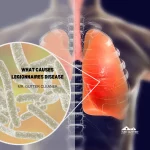Understanding the factors that lead to West Nile Virus involves examining the role of mosquitoes, which thrive in environments conducive to their breeding.
Home maintenance, particularly gutter cleaning, emerges as a crucial factor in this context.
Blocked gutters create stagnant water pools, ideal breeding grounds for mosquitoes.
These insects are not just nuisances but are vectors for West Nile Virus, transmitting the disease to humans through bites.
Effective gutter maintenance disrupts this cycle, reducing mosquito populations around the home and thereby minimizing the risk of West Nile Virus transmission.
This approach underscores the importance of regular home upkeep, linking it directly to health and safety concerns. Highlighting this connection offers homeowners valuable insights into preventing West Nile Virus, emphasizing practical steps they can take to protect their households through diligent maintenance routines.
What is West Nile Virus?
West Nile Virus is a mosquito-borne illness that affects a wide range of hosts, including humans, birds, and other animals. It was first identified in the West Nile district of Uganda and has since become a global concern due to its potential to cause outbreaks.
The virus is transmitted through the bite of an infected mosquito, leading to a variety of symptoms that can range from none at all to severe neurological diseases such as encephalitis or meningitis. The vast majority of people infected with West Nile Virus will experience mild symptoms, if any, but a small fraction can face life-threatening complications.
How is West Nile Virus Transmitted to Humans?
Transmission of West Nile Virus to humans primarily occurs through the bite of an infected mosquito. Mosquitoes acquire the virus by feeding on infected birds, which are the natural reservoirs of West Nile Virus. Once a mosquito is infected, it can spread the virus to humans and other animals through its bites. This transmission cycle underscores the importance of mosquito control in preventing the spread of the virus. Homeowners play a crucial role in this effort by maintaining their properties to eliminate standing water, thereby reducing mosquito breeding sites and minimizing the risk of West Nile Virus transmission.
What are the Symptoms of West Nile Virus?
The symptoms of West Nile Virus range widely, from none to severe. Approximately 80% of infected individuals show no symptoms, making the virus often go unnoticed. For those who do develop symptoms, the most common are fever, headache, body aches, joint pains, vomiting, diarrhea, or rash. Less commonly, about 1 in 150 infected people may develop severe illnesses affecting the central nervous system, such as encephalitis (inflammation of the brain) or meningitis (inflammation of the membranes that surround the brain and spinal cord). Symptoms of severe illness include high fever, headache, neck stiffness, disorientation, coma, tremors, seizures, or paralysis. Recovery from severe illness can take weeks to months, and some effects may be permanent. The wide range of symptoms underscores the virus’s unpredictable nature and the critical need for preventive measures against mosquito bites.
The Role of Mosquitoes in the Spread of West Nile Virus
Mosquitoes play a critical role in the transmission of West Nile Virus (WNV). These insects serve as the primary vectors, carrying the virus from infected birds to humans and other animals. The process begins when a mosquito feeds on the blood of a bird that carries the virus. After becoming infected, the mosquito can transmit WNV to humans through a bite. This transmission mechanism underscores the significance of mosquito control in preventing the spread of West Nile Virus.
How Do Mosquitoes Become Carriers of West Nile Virus?
Mosquitoes become carriers of West Nile Virus by feeding on the blood of infected birds. Birds act as reservoirs for the virus, harboring high levels of WNV without showing signs of illness. When a mosquito bites an infected bird, the virus enters the mosquito’s bloodstream and eventually moves to its salivary glands. Once in the salivary glands, the virus can be transmitted to humans and animals during subsequent feedings by the mosquito.
What Types of Mosquitoes Transmit West Nile Virus?
Several mosquito species are capable of transmitting West Nile Virus, but the most common vectors are members of the genus Culex. Culex pipiens, commonly known as the northern house mosquito, is a significant carrier in urban and suburban areas. Other species, including Culex tarsalis and Culex quinquefasciatus, also play roles in the virus’s transmission. The distribution of these mosquito species varies geographically, influencing the spread and risk of West Nile Virus in different regions. Understanding which species are prevalent in an area can help in developing targeted mosquito control strategies, thereby reducing the risk of WNV transmission.
The Connection Between Home Maintenance and Mosquito Populations
Effective home maintenance plays a pivotal role in controlling mosquito populations, thereby reducing the risk of West Nile Virus. Blocked gutters are a primary concern as they collect stagnant water, creating an ideal breeding ground for mosquitoes. Regular gutter cleaning and maintenance can significantly mitigate this risk by removing the conditions mosquitoes seek for laying their eggs.
How Can Blocked Gutters Attract Mosquitoes?
Blocked gutters can accumulate water and organic debris, providing mosquitoes with the necessary environment to breed. These pests require standing water to lay their eggs, which can hatch into larvae in as little as one week. The proximity of gutter systems to residential areas increases the likelihood of mosquitoes, potentially carrying West Nile Virus, coming into contact with humans.
Understanding the Life Cycle of Mosquitoes in Water Stagnation
Mosquitoes undergo four life stages: egg, larva, pupa, and adult. The first three stages occur in water, where larvae feed on organic matter in stagnant water, such as that found in blocked gutters. By disrupting this life cycle through eliminating standing water, homeowners can significantly reduce mosquito populations.
Practical Tips for Preventing Mosquito Breeding in Gutters
Maintaining clean gutters is essential for preventing mosquito breeding. Homeowners are advised to regularly inspect and clean their gutters, ensuring they are free from leaves, twigs, and other debris that can block water flow. Additionally, installing gutter guards can prevent debris accumulation, keeping gutters clear and reducing maintenance frequency.
Regular Gutter Cleaning: Why It Matters
Regular gutter cleaning removes the conditions that attract mosquitoes. This not only helps in preventing the spread of West Nile Virus but also protects the home’s structure by preventing water damage. Homeowners should clean their gutters at least twice a year, ideally in the spring and fall, to keep them functioning properly.
Installing Gutter Guards: An Effective Solution?
Gutter guards can significantly reduce the need for frequent gutter cleaning by preventing debris from entering the gutter system. While they may require an initial investment, gutter guards offer a long-term solution to reduce mosquito breeding grounds and maintain the home’s integrity against water damage.
Preventive Measures Against West Nile Virus
Adopting preventive measures against West Nile Virus is crucial for homeowners, especially in reducing exposure to mosquito bites, which are the primary transmission method of the virus. Personal protection and community efforts form the cornerstone of these preventive strategies.
Personal Protective Measures to Avoid Mosquito Bites
Minimizing mosquito bites significantly reduces the risk of contracting West Nile Virus. Homeowners can adopt several personal protective measures, including the use of EPA-approved mosquito repellents containing DEET, picaridin, IR3535, or oil of lemon eucalyptus. Applying these repellents to exposed skin and clothing according to product instructions can deter mosquitoes. Additionally, wearing long sleeves and pants during peak mosquito activity times, typically dusk and dawn, offers added protection. Ensuring windows and doors have intact screens also prevents mosquitoes from entering the home.
Use of Mosquito Repellents: What Works Best?
Choosing the right mosquito repellent involves selecting products with an EPA registration, which ensures effectiveness and safety when used as directed. Products containing DEET, picaridin, IR3535, or oil of lemon eucalyptus have been proven effective. The concentration of the active ingredient affects the duration of protection, not the level of protection, guiding users to reapply repellents as needed.
Importance of Mosquito Nets and Protective Clothing
For added protection, especially during sleep or in areas with high mosquito populations, mosquito nets offer a barrier against bites. Nets treated with insecticide are even more effective. Wearing protective clothing, such as long-sleeved shirts, long pants, and hats, can further minimize skin exposure to mosquitoes.
Community Efforts in Controlling Mosquito Populations
Community-wide efforts to control mosquito populations are essential in reducing the spread of West Nile Virus. These efforts include larviciding and adulticiding to target mosquitoes at various life stages. Public health departments often conduct mosquito surveillance to determine the need for control activities. Homeowners can contribute by eliminating standing water on their property, participating in community clean-up days to remove debris that can collect water, and supporting local mosquito control programs.
Local Mosquito Control Programs: How They Help
Local mosquito control programs play a vital role in managing mosquito populations through surveillance, public education, and control activities. These programs help identify areas with high mosquito activity and potential virus transmission, directing resources to reduce mosquito populations and educate the public on prevention methods.
The Role of Public Awareness in Preventing West Nile Virus
Raising public awareness about West Nile Virus and its prevention is a key component of community efforts. Educational campaigns focus on the importance of personal protective measures, eliminating standing water, and participating in community prevention activities. Public awareness can lead to increased community engagement, enhancing overall efforts to reduce the risk of West Nile Virus transmission.
Recognizing and Responding to West Nile Virus
Understanding when to seek medical attention for West Nile Virus (WNV) symptoms and knowing the available treatment options are critical for those who might be exposed to the virus. Immediate recognition and response can significantly impact the effectiveness of treatment and the overall outcome for the infected individual.
When to Seek Medical Attention for West Nile Virus Symptoms
Individuals should seek medical attention if they experience symptoms of West Nile Virus, especially if they have been in areas known for WNV activity or mosquito infestations. Symptoms requiring immediate medical consultation include severe headaches, high fever, confusion, muscle weakness, vision loss, numbness, and seizures. These symptoms may indicate a severe form of the disease, such as West Nile encephalitis or meningitis, requiring prompt medical intervention.
Treatment Options for West Nile Virus
There is no specific vaccine or antiviral treatment for West Nile Virus. Treatment primarily focuses on relieving symptoms and includes over-the-counter pain relievers to reduce fever and ease some symptoms. In more severe cases, patients may require hospitalization to receive intravenous fluids, pain medication, and nursing care. Supportive treatments, such as respiratory support, intravenous fluids, and prevention of secondary infections, are crucial for patients with severe WNV infections. Rest and hydration are also recommended for recovery from West Nile Virus.
FAQs About West Nile Virus and Mosquito Prevention
Frequently asked questions (FAQs) about West Nile Virus and mosquito prevention provide crucial information to homeowners. These questions address common concerns and provide actionable advice to reduce the risk of infection and mosquito infestation.
Can West Nile Virus be Prevented?
Yes, West Nile Virus can be prevented by minimizing exposure to mosquitoes, the primary vectors of the virus. Preventative measures include using mosquito repellent, wearing protective clothing, and eliminating standing water around the home, such as in blocked gutters, to reduce mosquito breeding sites. Regular home maintenance, including gutter cleaning, plays a significant role in preventing mosquito proliferation.
What Are the Long-Term Effects of West Nile Virus?
The long-term effects of West Nile Virus vary widely among individuals. While many recover completely, some may experience prolonged health issues, such as fatigue, weakness, and neurological problems. In severe cases, where the virus affects the brain or spinal cord, long-term effects can include muscle weakness, cognitive difficulties, and paralysis. These outcomes highlight the importance of prevention and early response to symptoms suggestive of West Nile Virus infection.


